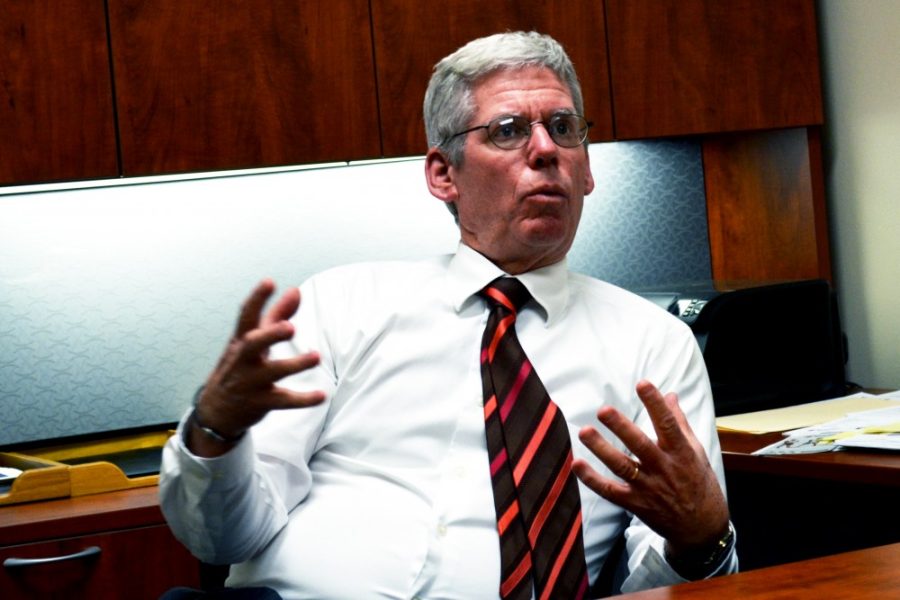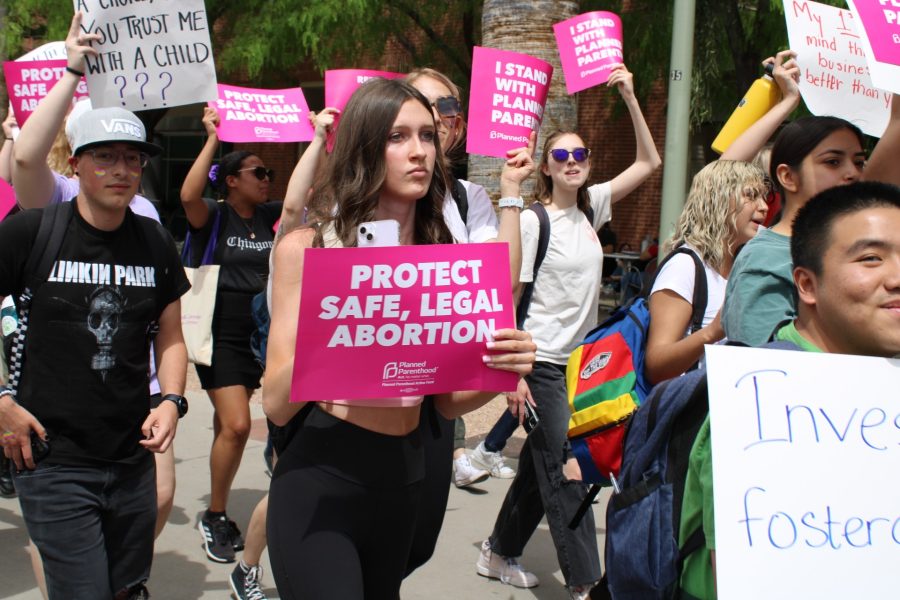The UA is in the process of revising an interim policy that prohibits one-on-one contact between UA faculty and minors.
The interim policy, which was put in place in November, was drafted by the Office of the General Counsel and prohibits UA faculty, students and third parties running events on campus from having one-on-one contact with non-enrolled minors.
This policy applies to the dozens of youth programs run by the UA and on the UA campus, and are also applicable to phone calls, emails and home visits.
The policy also disallows photographing and filming children and implements a compulsory training program for anyone working with children.
James Van Arsdel, senior assistant vice president of Student Affairs and Enrollment Management, said the interim policy was influenced partially by the sex crimes against children committed by Jerry Sandusky at Pennsylvania State University.
Sandusky, a former assistant football coach at PSU, was convicted in 2012 of sexually abusing young boys over the course of 15 years and sentenced to 30 years in prison. His victims were participants of a youth outreach program Sandusky founded.
Van Arsdel said the aim of the interim policy is to avoid private contact between children and UA faculty that could lead to inappropriate behavior. This means programs that involve close contact with minors now require a two-to-one ratio, with either two adults to one child or two children to one adult, he added.
Van Arsdel said that schools around the country are working to better protect children and the programs that educate them.
“It’s something that we are struggling with,” Van Arsdel said.
Van Arsdel said the revised draft uses less specific language. The revisions are meant to accommodate faculty whose programs cannot afford the additional staff or facilities necessary to conform to the two-to-one contact policy.
One such case is a youth music program run by Donald Hamann, a professor at the School of Music. Hamann said that the policy’s two-to-one rule presents difficulties when conducting music lessons in practice rooms only big enough for two people.
Hamann said he had not yet seen the revisions to the policy and could not comment on the effect they would have on his program.
Under the policy revisions, programs with unavoidable one-on-one contact would require the parents of the non-enrolled minors to sign a waiver, Van Arsdel said..
Patricia MacCorquodale, dean of the Honors College, said youth programs run by the college have been minimally affected by the interim policy, and that most of the activities, such as campus tours, are done in groups.
Some programs, such as overnight stays for high school students who have been accepted to the UA, have been slightly adjusted. UA student ambassadors host two minors rather than one in order to satisfy the policy.
MacCorquodale said if there are an odd number of high schoolers to host, those placed in one-on-one situations are not minors.
Van Arsdel said he thinks there is still a lot of learning to be done in the field of child protection and that it’s not a subject many people are comfortable discussing.
“I want people to feel passionate about the safety of our kids,” Van Arsdel said, “just as I want people to feel passionate about the education of our kids.”









